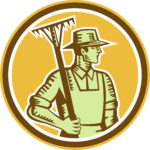The Native American gems in manuscripts: Osage Nation finds Jesuit archives preserving its history
Native American genealogy research is more than locating a name on Bureau of Indian Affairs censuses, tribal base rolls*, or complete faith in a family story that you have a Indian ancestor in your background. It’s learning about how to research family history in general, finding out more about that person or person, proving the story correct or incorrect, comparing people with the same name, and pulling together a comprehensive picture of that person.
Take classes on genealogy, read books on the process, join a genealogical society, learn more about Native American research. Help yourself progress in your ancestral quest.
It’s finding church, missionary, probate, birth, death, land, and so many other records. It’s understanding the usual migrations of the tribe and the forced migrations. It’s intensive work online, in libraries, archives, historical societies and courthouses. It’s not something that can be accomplished in a weekend, a month, or even a year. DNA testing is important but is not the full story. It doesn’t tell you the tribe and may not show Native American DNA. That could be too many generations back in your ancestry. That said, please do test because researchers need all the DNA databases to keep expanding.
A recent newspaper article in the Tulsa World, “Osage Nation finds Jesuit archives preserving its history,” demonstrates that we need to uncover so much more.
From that article:
It was so much more,” said Osage Chief Geoffrey Standing Bear. “Many of the documents go to the unknown history of our tribe. It involves stories and legends that we did not know. This is very important to the Osage. This is our history. Now, we can fill in some of the unknown. The Osage tribe, in conjunction with the Roman Catholic order of priests, has uncovered what Chief Standing Bear called “a treasure trove of documents about the history of our tribe”.
Your full answers may be somewhere!
* A base roll is a census or other lists that a tribe has established as a basis for determining membership. Typically you must have lineal descent from someone on that roll or rolls that may have been compiled in 1872, 1892, or even 1938. Many of these rolls are called by nicknames related to a place or the person creating the roll. A few of these “named rolls” are the Durant, Guion Miller, Dawes, Hinton, Wallace, or the roll may be know by the year of creation such as “1888 Base Roll” or the “1906 Delaware Roll.” NOTE: there are other factors for tribes that help to determine membership. Check the tribal websites for more information.

